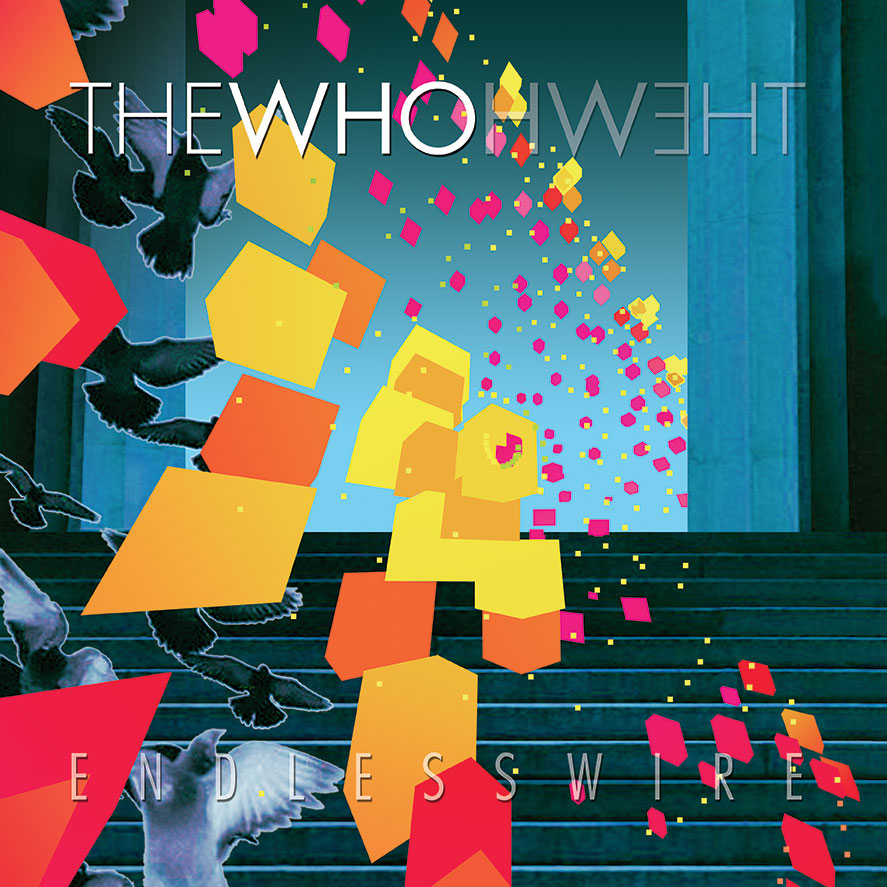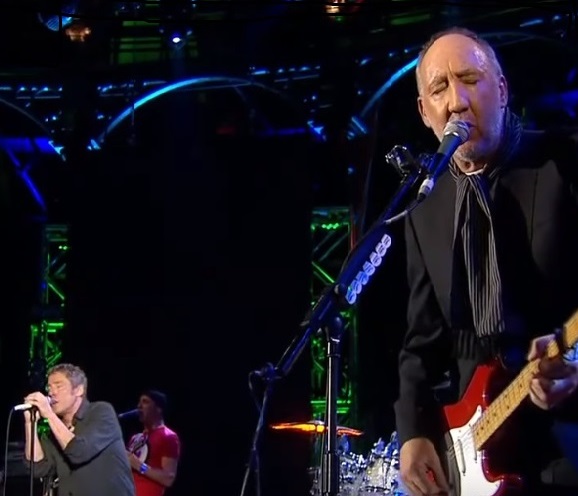
Before The Who released their 11th studio album Endless Wire in 2006, there was very little above the radar activity by the band. However, if you were a blogger back in 2005-06 (or someone who liked to read blogs), you would have seen a very bare-bones Blogger site by Pete Townshend where he was drafting and sharing an idea for a novel or novella. Townshend deleted the blog sometime after getting a lot of feedback about the story, but what came out of that interaction between an artist and his fans was a novella called The Boy Who Heard Music. If you knew nothing about Townshend’s blog, the novella, and even larger plans to turn the story into, what else, a rock opera, Endless Wire would sound kind of odd. That’s especially true if the first song you heard off the record was Townshend’s “In the Ether.” In that song, Townshend isn’t affecting a Tom Waits-like growl just for aesthetic reasons. Rather, it serves the larger narrative of the story as Townshend is playing a character, Ray High. High was a Townshend surrogate who made his debut in Townshend’s solo album, Psychoderelict (1993). Now, as an old man, Townshend sings the song in a way that’s abrasive, passionate, and like certain beers, is an acquired taste.
Most folks, however, probably heard a more familiar sound with the opening synth of “Fragments.” While that song certainly harkens back to music from 1971’s Who’s Next, it’s much more rooted around the stabbing guitars that Townshend brings to the front of the mix. By this point in The Who’s history, Roger Daltrey’s voice had lost a lot of the power that made him a formidable vocalist. That’s not to say he was completely unable to belt it out, but for most of the record, he sings in a more subdued manner. Case in point is “A Man In A Purple Dress.” Granted the song lends itself to a lower volume with its lilting style. Lyrically, it’s mistakenly thought of as Townshend’s response to his legal troubles after working to expose the banking industry’s tacit relationship with those who trafficked in child pornography on the internet. But the liner notes tell us the song was inspired by Townshend viewing Mel Gibson’s The Passion of the Christ.
“Mike Post Theme” is a return to form for The Who. The power chords are there, Daltrey bellows out the lyrics with his trademark lion roar of a voice, but the song itself is a kind of retread (or maybe an echo) of older, better music by the band. The song isn’t bad, but it does seem to lack that certain something that listeners have come to expect from tunes that really rock as this one does — or attempts to do.
“Black Widow’s Eyes” continues with a stylistic throwback to that Classic Coke sound from the band. If bassist John Entwistle hadn’t died of heart failure in 2002, one wonders what kind of flourishes he could have brought to a song like this. Pino Palladino is a great bass player, but what made The Who so unique was the interplay between the four guys – all of whom carved out signature sounds. Palladino, like Kenney Jones who replaced Keith Moon in the late 70s to the early 80s, is technically proficient on his instrument but doesn’t stand out like Entwistle did when he contributed to Townshend’s songs. Standing out is not a problem for Palladino in “Two Thousand Years — and that’s because he doesn’t have to. The tune is built on a repeating riff strummed out on a mandolin with Daltrey and Townshend doing mostly a duet that’s very much about Jesus Christ. Again, this is not Townshend becoming a Born Again Christian. Rather, the song is related to a character in The Boy Who Heard Music, Gabriel Pirelli. Indeed, most of the songs are part of a larger story, rather than being stand-alone pieces. That goes for “God Speak of Marty Robbins,” “It’s Not Enough” and “You Stand By Me” — all of which were featured in the rock opera The Boy Who Heard Music that was performed at Vassar College in 2007.
However, on Endless Wire, it’s in the mini-opera — Wire & Glass — where Townshend attempts to formally tell a story. Things start with the galloping drumming from Peter Huntington on “Sound Round” — who replaced Zak Starkey for most of the recording while Starkey was touring with Oasis. “Sound Round” is an energetic opening salvo in the opera, but never really signifies the major musical themes like the overture did in Tommy or the instrumental “Quadrophenia.” Another flaw in this mini-opera is that the majority of the songs are very short — with most averaging between about 90 seconds to a little over two minutes. “Pick Up The Peace” certainly has energy, but it doesn’t stand out as anything special. That’s not the case with “Unholy Trinity.” Stylistically, it’s a kissing cousin of “Two Thousand Years,” but it’s less about hooks and catchy riffs than it is about advancing a plot for a character. The same goes for “Trilby’s Piano” — which is clearly a kind of show-stopping ballad meant for the theatre. “Endless Wire” is a bit plodding with Townshend’s laconic vocal delivery, and by the time “Fragments of Fragments” comes around, the effects-laden song feels weighed down by its own self-importance. “We Got A Hit” regroups around what makes for a good Who song, but it’s almost over before it begins. “Mirror Door” serves as a denouement that transitions into a vague conclusion that’s played out in “Tea & Theatre.”
Endless Wire clearly marks the band at a turning point (one of many during their career). After Entwistle’s death, it was clear that whatever made The Who into, well, The Who evolved/transformed into something less grandiose and more mature in terms of song stylings. It’s not clear what Townshend and Daltrey thought of the songs on Endless Wire after their tour in support of the record. Indeed, during that tour, around 11 songs were featured from the album during various legs, but after that? Well, it seems only “Tea & Theatre” remains a band favorite since it’s on the setlist on the current Moving On Tour. Most critics liked the record, but listening to it after more than a decade shows that while Townshend was certainly inspired to write material for the new incarnation of The Who, time has not entirely been kind to the songs. The post-Moon records were often slagged by fans and critics alike — with It’s Hard getting the most criticism from even Daltrey. However, while both Face Dances and It’s Hard had moments of weakness, they contained some very strong compositions by the band that to this day have their superfans. But are there any songs on Endless Wire that compare to the strength of say “Another Tricky Day,” or “Eminence Front?” Not really, but it’s difficult to fault The Who for trying.


Got this when it first came out. It didn’t resonate with me and I don’t think I’ve listened to it again since it was released. This is an album that seems to support the argument that maybe a band would be better served by calling it quits rather than lingering around trying to recapture past glory. The Who is by no means the only band that falls in this category. The list is long with perhaps the Stones being the best example. If a band is lucky, they have 5 good albums in them. After that, they are just trying to keep their career going. There are exceptions, but not many.
Oh yeah, bands go on, long after the thrill, of writing good songs is done.
I had a similar reaction to “Endless Wire” when it came out as you did, Bill. After spending more time with the record in the run up to writing this piece, certain songs started to stand out in ways I dismissed them before. You’re probably right that most bands only have a handful of good records in them, but Townshend and The Who’s output has, to me, far more hits than misses — even on their less regarded albums. The next record (which will probably be The Who’s last one) will be interesting to experience since, at this phase of their career (which as they describe as “the long goodbye”), Townshend & company are in swansong territory.